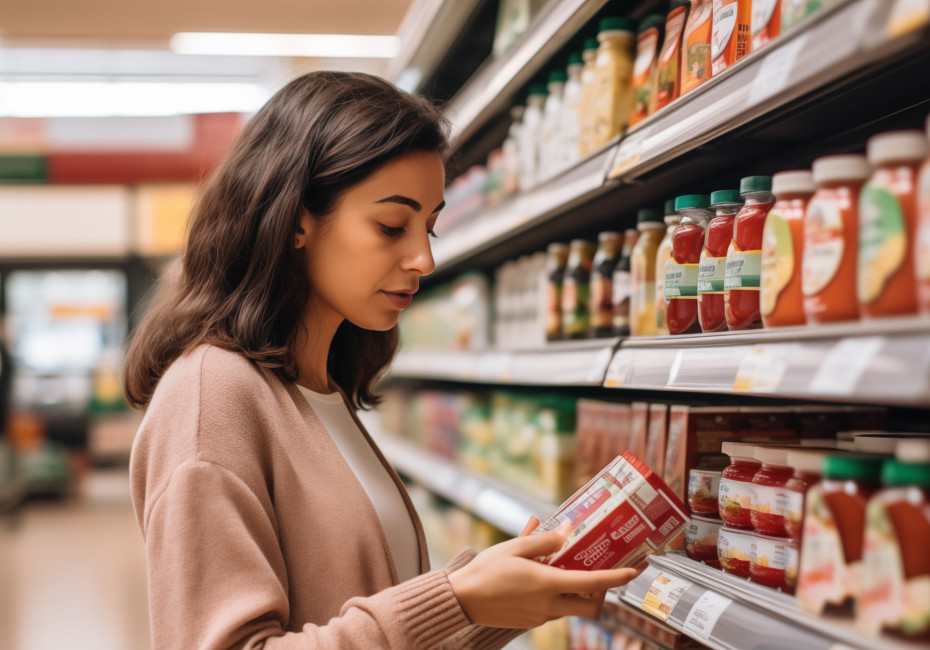Related services
In 2024, we expect consumers to seek products that are better for their health and better for the planet too.
Shoppers are more informed than ever but, since the pandemic, have had a growing concern for making choices that more actively benefit their health and allow them to be kinder to themselves and those around them.
As part of this increased interest in the small print of our daily food and drink products, there are two factors that are growing ever more important - kindness and wellness.
What is the ‘kindness economy’?
The Kindness Economy is a move away from the traditional capitalist business model of take, take, take and a firm step towards a more environmentally considerate and socially responsible one. Modern consumers are now seeking the narrative behind their favourite brands and the impact that they have on the world both socially and environmentally.
“Effectively, it means that we need to think and be generous and kind in the way that we approach business so that we create an economy that puts people and the planet before profit... It’s still an economy because businesses need to make a profit to keep going, but it’s an economy with a heart and a conscience.” Mary Portas
To give you an idea of just how important a company’s kindness has become, a recent survey found that over 60% of people had refused to buy a product or service because they felt the company was ‘unkind’. Over 50% would still refuse even if the product was cheaper. On the flip side, the same study also found that 49% were more likely to purchase from kind companies as they ‘want to see those companies succeed’.
Consumers now see their product choices as a reflection and extension of who they are and what they value and are willing to pay a premium to support them. As such, it’s vital that brands start telling their story and building (or rebuilding) trust and reputation amongst shoppers.
What is ‘wellness culture’?
The dictionary defines ‘wellness’ as ‘a combination of emotional, environmental, mental, physical, social and spiritual health’. Recent trends, driven largely by social influencers and pop-culture, have raised the profile for healthy plant-based diets, daily exercise regimes, mindfulness practices and natural healing, resulting in a fresh culture for wellness. The foundation of this new culture is the emphasis on individual choice and responsibility for the way we live our lives and the food that we put inside us.
Clean labels and the importance of transparency and traceability
The Institute for Food Technologists defines the term ‘clean label’ as ‘making a product using as few ingredients as possible and making sure those ingredients are items that consumers recognise and regard as wholesome’.
With the modern digital age rife with misinformation; authenticity, trust and transparency are more important than ever with 74% of global consumers now expecting companies to be open and honest about where and how they source their ingredients. Despite inflation, 78% are also prepared to pay extra for their clean label food products.
In the pursuit of the clean ideal, consumers demand total transparency about the production process and supply chain of food and drink products on their supermarket shelves. The reason being that it gives them the power to make informed choices regarding the authenticity of a product as well as its kindness and wellness claims.
Growing concerns with the wellness culture
There are concerns among some dieticians that the wellness trend has started to blur into more of a thin-worshiping ‘diet culture’ and that the seemingly endless list of foods and activities to avoid, substitute, eliminate or concern yourself with is leading to consumer burnout. This circle of self-blame, self-criticism and guilt, supported by influencers setting an almost impossible set of standards, could actually be causing more harm than good.
A recent study found for instance that, whilst 68% of consumers said their diet was an area in which they wanted to improve, 46% agreed that they often find it difficult to maintain healthy living goals.
In reaction to the restrictive diet trends, researchers are starting to see a move towards flexitarianism as more radical regimes such as veganism feel too limited a concept for some. There is also an increasing demand for convenience within this sector with products that claim to simultaneously address multiple areas of their physical and mental wellbeing being favoured over specific, individual benefits.
Interestingly, there also appears to be a growing trend towards gut-friendly food products over products that claim to be low in fat, low calorie or fat-free, with probiotic products proving to be ‘most important’ in the eyes of consumers. This is seeing the rise in popularity of food products such as yoghurts, kefir, kimchi and kombucha in recent years.
A shift in mindset…
In another step away from the mainstream wellness culture, people are taking a step back and considering not only what is healthy but what makes them feel good with mental health, mood and energy levels now also a priority. A recent survey for instance, found that 4 in 5 consumers said their mental well-being was equally as important as their physical health.
Taking this more holistic approach to health and wellbeing is leading people to search for more of a balance between healthy foods and mindful indulgence aimed at boosting our mood or providing us with a reward to counter the stresses in our lives.
What this all means for food & drink brands today
Positivity and realism
Products that offer a realistic and convenient approach to healthy eating are likely to win favour with consumers struggling to meet their daily health goals. As such, focusing on experience and indulgence may be just as important, providing a more accessible and achievable route for consumers interested in improving their physical and mental health through diet.
Go big on quality and use fewer ingredients
Consumers are now regularly stocking their pantries with fewer, but higher-quality food products made with ethical ingredients and a socially responsible mindset.
Think about the community
Brands that think bigger than themselves will succeed in today’s market. Climate and community-positive products not only resonate with the values of your buyers but provide them with a feel-good factor that supports their goals of mental wellbeing. Understand the needs and interests of your community and you’ll go far.
Engage in storytelling
Consumers are keen to support brands with a unique and interesting story and both your marketing and packaging are a great opportunity for sharing these messages. Talk about your backstory, highlight the origins of your ingredients and your community of growers, explain how you support them and how you minimise the footprint of your product.
Multifunctional health benefits
If your product has a number of benefits for both physical and mental health then make sure this message is communicated clearly as ticking several boxes in one go is a major draw for shoppers at this time.
Sustainability
With the recent rise in flexitarianism suggesting that perhaps the environmental attitudes have become re-prioritised in favour of self-care, shouting about the eco credentials of plant-based ingredients themselves might not be the most convincing call to action compared to a focus on the healthy, nutritious angle. That being said, the packaging of your food and drink products remains an important factor of consumers with 86% claiming that they would be happy to pay more for products using recyclable, reusable, or refillable packaging. Therefore, to further support the kindness of your brand - if your product uses recycled, recyclable, compostable or reusable packaging, then make sure you shout about it.
Clear messaging
68% check nutrition labels on snacks before buying them and 71% of consumers trust clean label claims on packaging.
Clear and easy-to-understand details about your ingredients are therefore an absolute must. Clinical evidence, scientific support and genuinely appropriate portion sizes for any health and nutritional claims are also very important with 41% of consumers finding evidence like this to be important when making their purchasing decisions.
Overall the messages on your packaging should aim to maximise awareness, transparency and trust.
In conclusion
A move towards a more transparent, open and honest world of business, one that values fairness and healthiness in both mind and body can only be a good thing. The key here however, is to always remain authentic, be open to the values of your community and to promote healthy and achievable goals for your customer base.
If you’d like to discuss your brand positioning or are looking to strengthen the messaging of your products get in touch and we’d love to help.
For more news follow us @rootstudiouk
Similar posts

Many small businesses and marketers are measuring what’s right in front of them, not what’s meaningful. So what if we stopped chasing numbers for numbers' sake and started tracking what actually matters?

Top task analysis is like Marie Kondo for your website. You find the few tasks that spark real value - and tidy up the rest.

